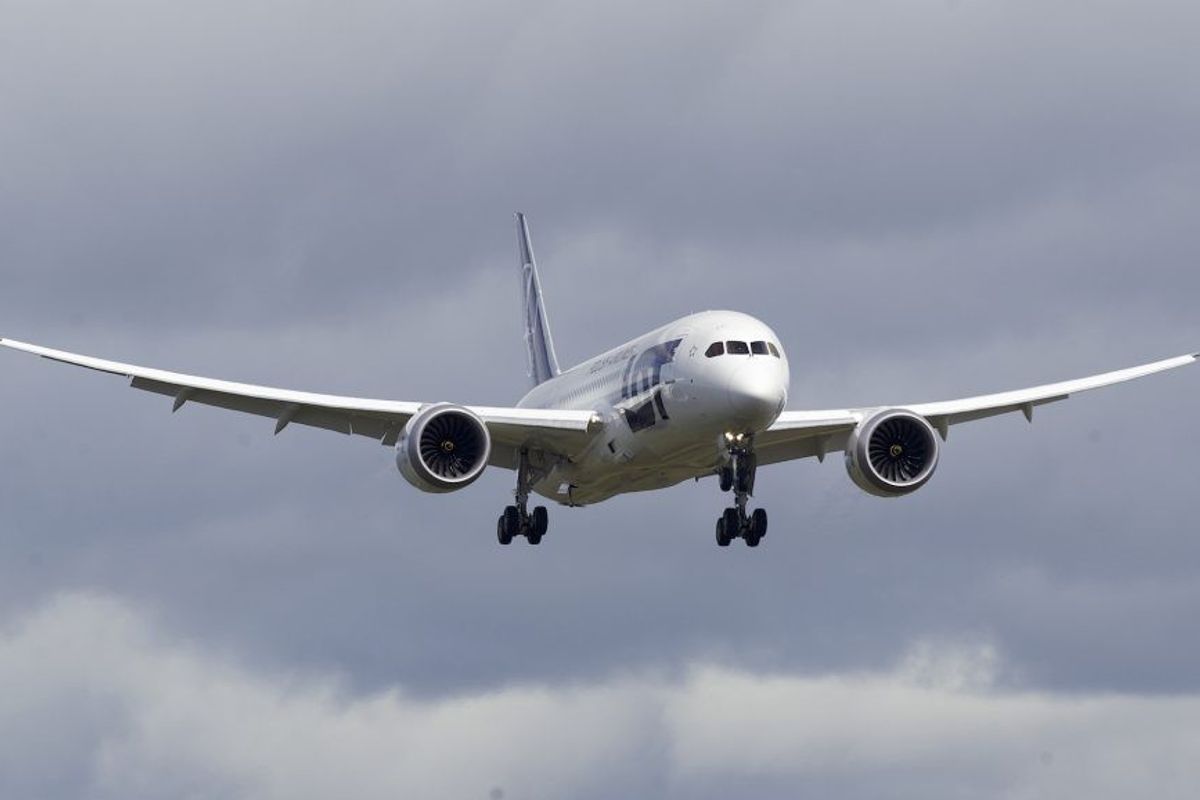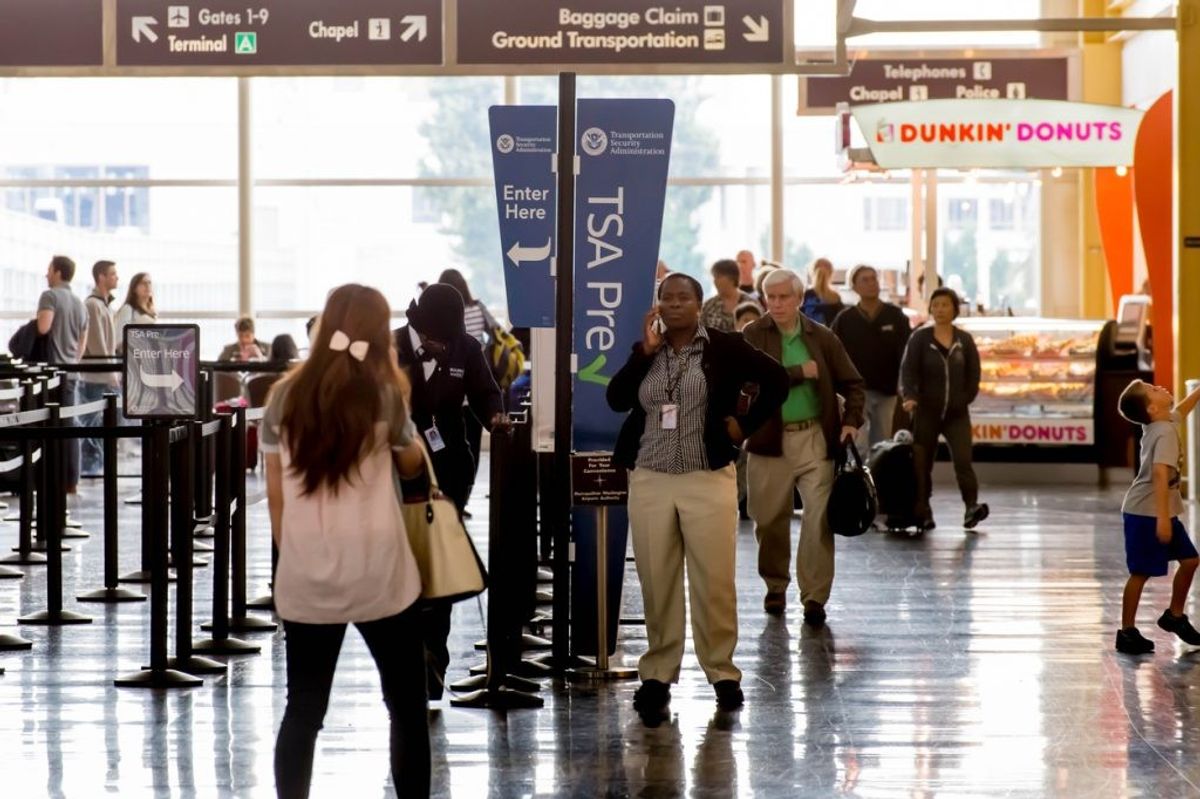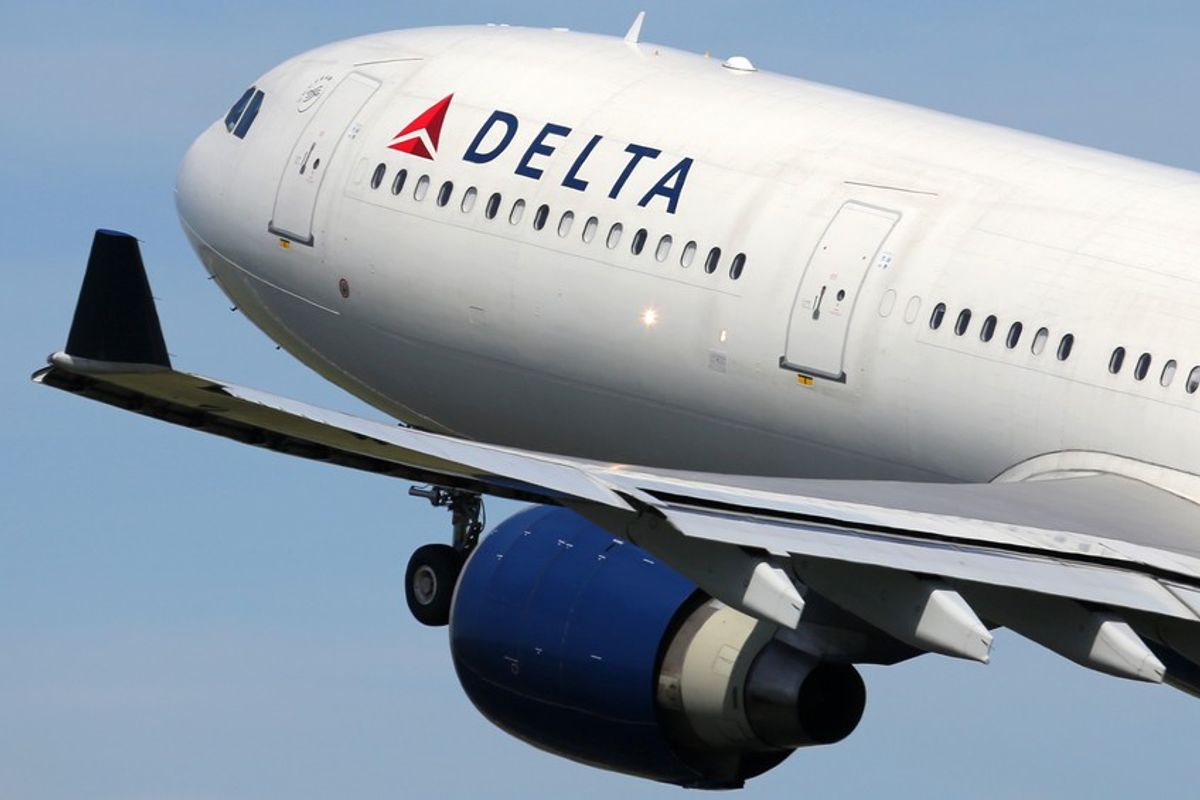The U.K. has joined the U.S. in restricting electronic devices in carry-on baggage on flights from certain countries in the Middle East, North Africa, and Turkey. The measures are being taken as a security precaution to thwart potential threats.
The American ban covers flights that fly directly to the United States on nine international airlines operating out of 10 airports: in Morocco, Turkey, Egypt, Jordan, Saudi Arabia, Kuwait, Qatar, and the United Arab Emirates.
It would affect: Royal Jordanian Airlines, Egypt Air, Turkish Airlines, Saudia, Kuwait Airways, Royal Air Maroc, Qatar Airways, Emirates, and Etihad Airways. The carriers have until Friday to adopt the new policy.
The British ban affects a total of 14 carriers, including Royal Jordanian, Egypt Air, Turkish Airlines and Saudia. It also adds to the list: British Airways, easyJet, Jet2, Monarch, Thomas Cook, Thomson, Atlas-Global, Pegasus, Middle East Airlines, and Tunisair.
The British restrictions apply to direct inbound flights from Turkey, Lebanon, Jordan, Egypt, Tunisia, and Saudi Arabia.
The Cipher Brief’s Executive Producer Leone Lakhani spoke to Michael Chertoff, former Secretary of the U.S. Department of Homeland Security and member of The Cipher Brief Network, to find out the reasoning behind a ban like this.
The Cipher Brief: What are your thoughts on the ban, and how effective can restrictions like this be?
Michael Chertoff: I’ve expected something like this for some time, because bomb makers are getting more sophisticated at shrinking the device in which they put explosives. They’re, of course, trying to get by the current screening situation by putting in undetectable explosives in sufficient quantities to do real damage to an airplane.
What authorities are trying to do here is look at what the current bomb-making technology is. They have made a judgment that [electronic] devices above a certain size requires putting them in the hold, as opposed to letting people have access to them on the airplane. Below that size, they feel comfortable that the amount of explosives would not be sufficient to do any real damage.
TCB: Can you really stop an attack by checking electronics into the hold, instead of taking them onboard? Couldn’t explosives also be put into electronics that go into the hold?
MC: You could, but it’s all about risk management. Nothing is guaranteed, but you’re trying to manage the risks. The judgment, in my estimation, is that in order to have a timer or some kind of pressure-sensitive device, you couldn’t just embed into a laptop. That’s a much more complicated type of explosive. It’s going to be much larger, and it’s going to be obvious when they check your baggage that goes into the hold. The risk, at this point, is going to be much greater for a device that you can manually detonate, as opposed to one that would require a timer or pressure-sensitive device.
TCB: Is there a problem in the screening of the devices in these particular countries?
MC: I’m speculating a little bit, but there are probably three considerations. One is that these airports are in an area or region where there are a number of sophisticated bomb-makers. So the possibility of a sophisticated bomb-maker getting access to somebody who’s going to fly from one of those airports is maybe higher than in other parts of the world.
Second, the technology in these airports may not be sufficient for authorities to feel comfortable about the detection of this kind of explosive device.
Third, part of the screening process is looking at people and not just things. It may be that the intelligence capability in these those areas – in terms of the amount of data that’s available on passengers – is not sufficient to be comfortable in identifying high-risk people.
So what they’re trying to do is look at all those considerations and manage the risk, without going so far as banning electronics all together, which would really be burdensome on a huge number of passengers.
TCB: So in screening devices in these airports, is it also about the personnel? How much confidence is there that these personnel will sufficiently carry out these new checks?
MC: I didn’t say it was about the personnel at these airports. When you’re screening passengers, the question is “do you have a capability in terms of your data and your screening algorithms, to be confident that you can identify high risk people.” That’s a technological issue and a data issue. It’s not about the personnel at the airport.
TCB: If terrorists want to carry out these attacks, couldn’t they potentially fly from other airports?
MC: Again I’m speculating, but I think the judgment is that in other airports, the combination of technology, the intelligence that is available to the authorities, and the difficulty of getting from one of the areas into one of these other airports, the risk is low enough that you don’t have to impose the ban there.
TCB: The White House has denied this is related to the travel ban that they’re proposing. Do you think there is any relation to the potential new travel ban?
MC: I think it’s totally unrelated. This is not focused on citizenship or visa status or anything that applies to Americans. I also have a sense this has been debated and discussed for some time.
There was a bomb that went off in a Somali airliner in 2016, which has been attributed to an explosive device brought onboard in a laptop. I think for some period of time now, the authorities have been examining the issue and trying to figure out where to draw the line, so as not to unduly burden people but to capture what appears to be an emerging threat.
TCB: From your understanding then, there has been a lot of talk of it in security circles because of a history of what is being planned by terrorists?
MC: We have always known that terrorists are trying to put explosive devices into smaller and smaller things. A few years ago there were explosive devices in printers that were shipped onto a cargo plane. You had this Somali incident last year. People have been keeping an eye on this for some time.
TCB: This comes as a shock to some business travelers. I’m sure that’s taken into account for a ban like this, but what could the ramifications be economically?
MC: I hate to put it this way, but it is possible to take a flight without working on a laptop. Either people will learn to work on their smartphones, which is a little cumbersome, but certainly for reading and some things, you can do that. Or people will shift to more paper and do work that way. I don’t know if there will be any significant economic impact. The airlines that have been selected are ones that fly directly to the U.S. from these airports. Your alternative is to go in a round-about way, which is not particularly appealing.
TCB: Do you think there’s going to be an issue in terms of perception because of the parts of the world where these airports are?
MC: I don’t think so, because I’m sure they’ve communicated with the local airports about the rationale for this. Bear in mind, the British have imposed a similar requirement. So it’s not just unique to the U.S. I wouldn’t be surprised to see other countries following suit. I think it is not based on any issue involving religion or ethnic background. This is based, unfortunately, on the increasing sophistication of bomb makers, who want to carry out attacks on aviation.
TCB: You said you’ve been expecting some kind of ban. How long have you been hearing about this kind of thing?
MC: When I saw the Somali thing last year, I thought that was a sign of something likely to come. But in general, we’ve always known that the terrorists are getting better and better at miniaturizing their explosives. We have to stay ahead of that.
Leone Lakhani is executive producer and reporter at The Cipher Brief. Follow her on Twitter @LeoneLakhani.











